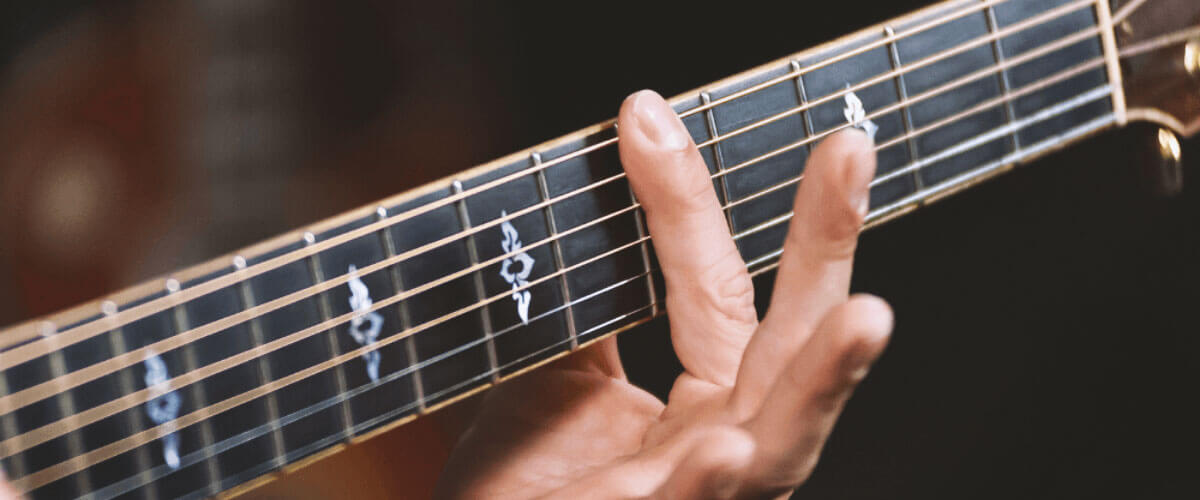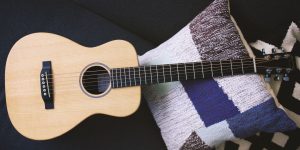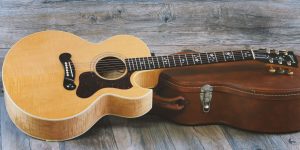It’s a common question among guitar players – does hand size affect how well you can play? Unfortunately, it isn’t easy to find a definitive answer, but there are some interesting theories.
One common belief is that smaller hands may have an advantage when it comes to intricate guitar playing because they can more easily reach the smaller frets. However, another theory posits that larger hands may be better suited for strumming and rhythm guitar playing because they can simultaneously cover more strings and frets.
Ultimately, it depends on preference and what feels most comfortable for you. If you have small hands, don’t let that discourage you from learning guitar – you can still do it! And if you have large hands, don’t worry – you’ll be fine too. Ultimately, the size of your hands shouldn’t make much of a difference in your guitar playing ability. It doesn’t matter what hands you have; the more practice you have, the better you will play.
Is it easier to play the guitar with skinny fingers?

There isn’t necessarily an advantage to having thinner fingers when playing the guitar – it depends on the style of music you’re playing and your personal preferences.
However, some people find it easier to play the guitar with skinny fingers. It is because thinner fingers are able to reach the strings more easily and can press down on them with less effort. Additionally, thin fingers are less likely to get in the way of each other when playing chords.
However, this is not to say that playing the guitar with thicker fingers is impossible – it just takes a bit more practice and effort. Some people may even find it more challenging to play with thin fingers because they have less surface area to grip the strings.
What else influenced the guitar playing?

While hand size can undoubtedly affect your guitar playing, other factors are more critical in determining how well you play. So let’s take a closer look at the role of hand size in guitar playing and see what we can learn.
One of the first things to consider is the size of the guitar itself. If you have small hands, it stands to reason that a smaller guitar will be easier to play. Conversely, a larger guitar may be more comfortable for you if you have large hands. Many beginner guitarists start with smaller guitars, such as ¾ or ½ size models, before moving on to full-size instruments.
Another thing to consider is the distance between the frets on the guitar neck. If the frets are spaced further apart, reaching them with your fingers will be easier. It is why many guitarists with small hands prefer guitars with wide fretboards. On the other hand, if the frets are closer, reaching them can be more challenging, making it harder to play accurately.
Finally, how you hold the guitar can also affect how easy or difficult it is to play. For instance, if you hold the guitar in your lap, it may be easier to reach the frets with your fingers. On the other hand, if you hold the guitar up against your body, reaching the frets can be more challenging.
We are supported by our audience. When you purchase through links on our site, we may earn an affiliate commission at no extra cost to you.
Our newsletter
* We will never send you spam or share your email with third parties












